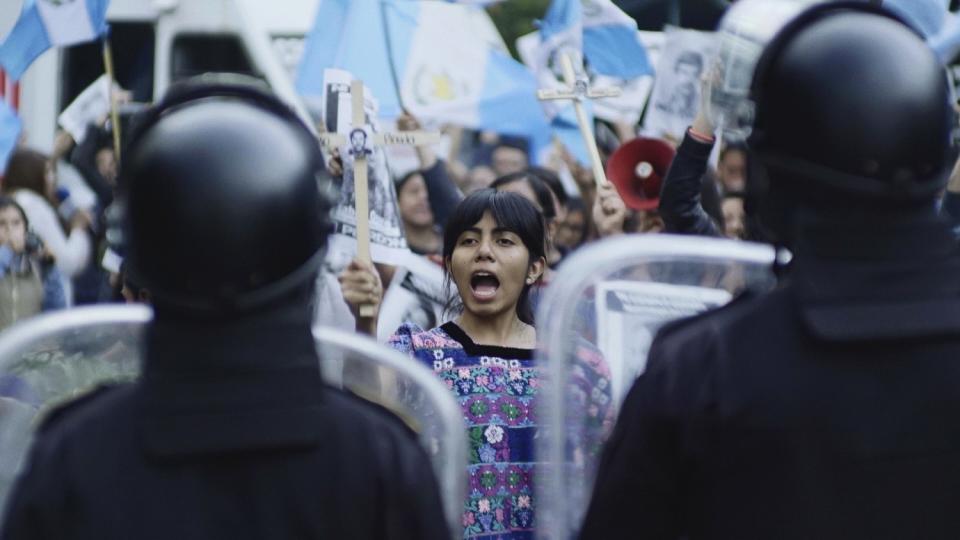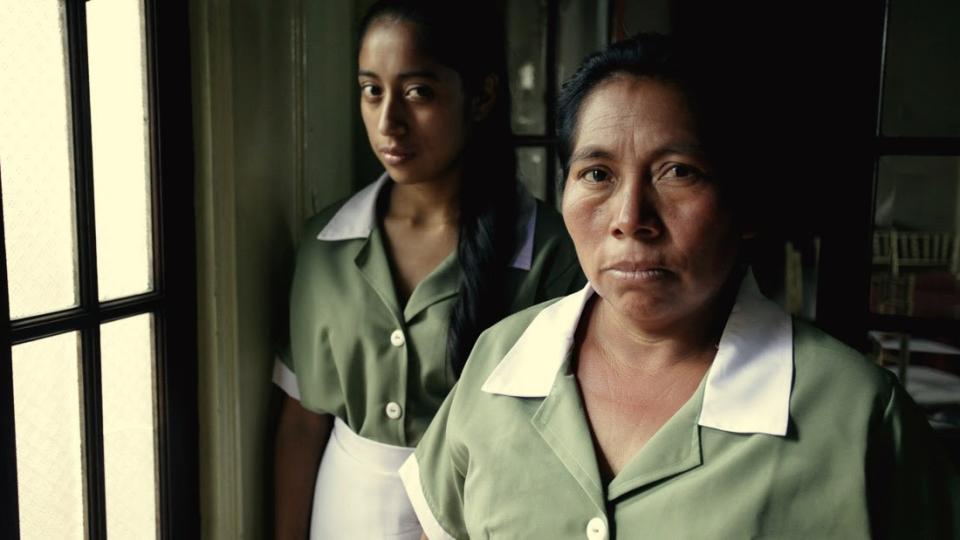Review: 'La Llorona' smartly reimagines a folk legend as political horror story

A woman is spurned by a lover. She goes mad, drags her children to the river and drowns them. In the afterlife, she is condemned to search for them always, haunting riverbanks, dressed in white, crying for the children who died by her hand.
The legend of La Llorona, the wailing woman of Mexican and Central American folklore, is ripe for cinematic interpretation. There is jealousy, passion and brutal filicide, all followed by eternal haunting. Over the years, this has provided grist for an array of horror movies with names like "The Cry" and "The Wailer," the latter part of a trilogy. (So. Much. Wailing.) And, of course, there was last year's forgettable "The Curse of La Llorona," in which La Llorona, looking like a gory cadaver, haunts a family in 1970s Los Angeles. (A Los Angeles that, strangely, didn't much feel like the ’70s or Los Angeles.)
These films represent an unfortunate treatment of this cultural grand dame. La Llorona is a figure whose place in the lore of this continent dates back centuries — likely to the precolonial, indigenous myths of Mesoamerica — and she deserves much better than the tedious frightfests that have been made in her name.
Thankfully, director Jayro Bustamante has delivered a picture worthy of her legend. His "La Llorona," which landed on the horror platform Shudder earlier this month, brings the story into the present and gives this tormented spirit a more compelling milieu.
The film is set in contemporary Guatemala at a moment in which the country is coming to terms with the violence unleashed by the military during a decades-long civil war in the 20th century. The story centers on a retired general named Enrique Montevideo (played by Julio Díaz), who is now a shrinking old man, but still given to moments of defiant impunity.
The character is a stand-in, both in story and appearance, for the late Guatemalan dictator Efraín Ríos Montt, who was convicted of genocide and crimes against humanity in 2013 for the systemic massacre of Maya indigenous communities in the Guatemalan highlands during the civil war. As Ríos Montt once summed up his policies: "If you are with us, we will feed you. If not, we will kill you." His conviction brought only the briefest moment of justice. It was overturned just days later.

In "La Llorona," we catch Montevideo at the moment he stands trial for his crimes. In scenes worthy of Latin American mural painting, indigenous women testify to murder and rape as Montevideo, playing the frail old timer, shows up with IV bag in tow. Nobel laureate Rigoberta Menchú Tum, who has fought for Indigenous rights in Guatemala, makes a cameo.
But the real action takes place at the general's stately home, where Montevideo's family, including his wife Carmen (chillingly played by Margarita Kenéfic) and his daughter Natalia (Sabrina de la Hoz), marinate in their complicity as they contend with the fallout of the trial. The household staff has quit en masse. The general has taken to dreamy middle-of-the-night meanderings while brandishing a gun. A sea of protesters surround the house, turning it into a de facto prison. The family remains suffocatingly confined as they reckon with a history of violence (a theme that couldn't be more resonant at this moment in time).
Enter Alma (played by María Mercedes Coroy), a young Indigenous woman from an unnamed highland village, who arrives to help out the one remaining housekeeper, Valeriana (María Telón).
It is immediately clear that Alma may not be quite who or what she says she is. All we know about her background is that she once had two children. They are now dead; the cause, a mystery.
Coroy, who made a stellar debut as an impetuous adolescent in Bustamante's critically well-received debut, "Ixcanul" in 2016, plays the role with equal parts seduction and threat. Her lines are few. If she is a bit of a cipher, it's because La Llorona is too.
The tale of La Llorona can vary widely according to the telling. She is single. She is married. She is jealous. She is heartbroken. She is insane. She is regretful. She haunts womanizing men. She is a familial disciplinary tool. (Some parents tell their kids that La Llorona will get them if they don't behave.) In the film, she is Montevideo's violent past come back to haunt to him.

"La Llorona" avoids the tropes of horror: the screechy violins and bumping furniture. Instead, this smart and elegant film feels like a languid bit of cinematic magical realism where strange things happen — and the real horror lies not in the supernatural but in the savage acts of men. (The fact that it's streaming on Shudder and not on a more prominent service, such as HBO or Netflix, reveals a spectacular lack of imagination on behalf of U.S. distribution companies.)
With this film, Bustamante creates a Llorona full of self-assertion and intent, an indigenous woman assuredly facing the source of her pain. This is a Llorona who is no longer trapped in the past. She has landed fully in the present. And she is ready to extract what is due.

